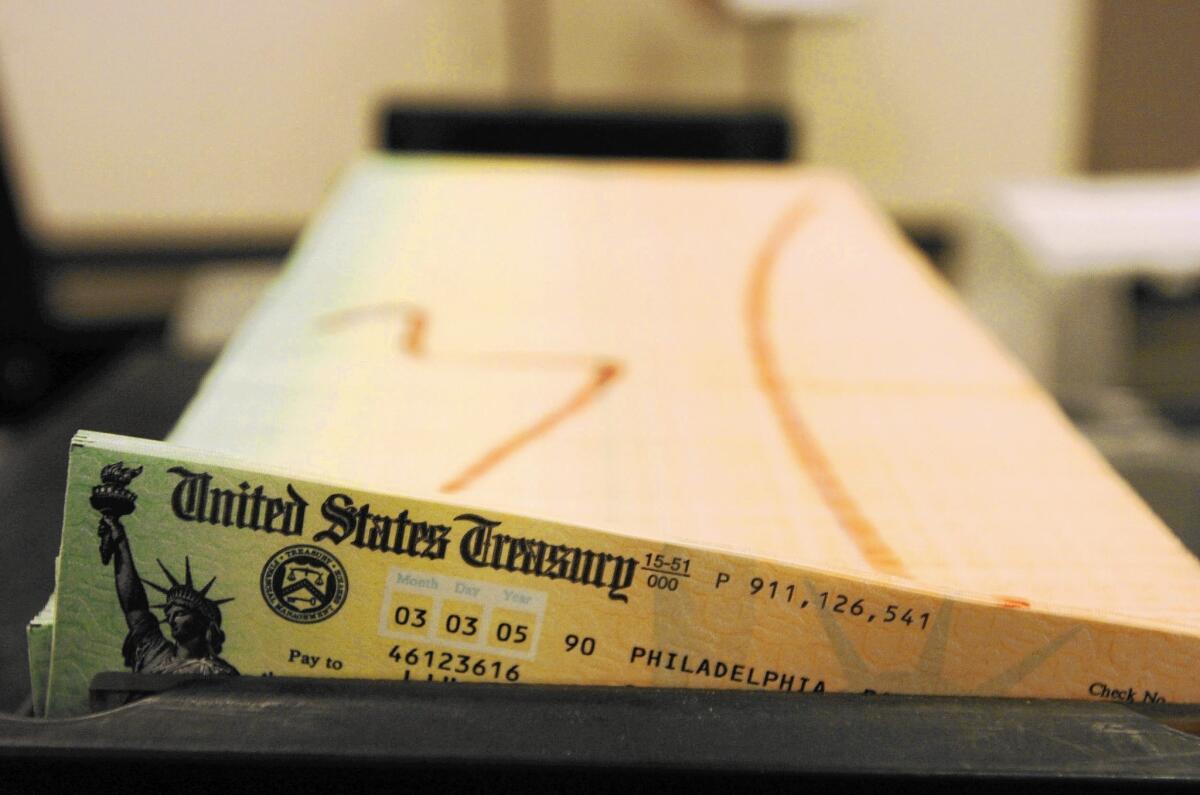Personal finance Q&A: Pay a bogus bill to protect credit rating?

- Share via
Dear Liz: I was a volunteer for a research study at a local university. It required a blood draw done at the university’s hospital. A month later, I received a bill for the blood draw, which I questioned. I was told it was a mistake and that I was in no way responsible for costs associated with the research study. Because the hospital was installing a new billing system, I was told it would take a while to resolve and not to worry about any bills that would come to my house.
Now, three months later, the hospital has turned the bill over to a collections agency, with the amount due double the original cost. They have given me 30 days to pay up, or they will report the delinquency to the credit reporting agencies.
The university seems unable to fix the problem, especially now that the debt has gone to collections. Should I pay the bill to save my excellent credit rating? Or should I continue to fight the university and now the collections agency?
Answer: To avoid damage to your credit scores, sometimes the best course is to pay a disputed bill and then sue the creditor in small claims court. Since you have some time to fight back, however, you should do so.
The good news is that medical bills are usually placed with collection agencies on assignment. That means the hospital can take back the account if it’s sufficiently motivated to do so. Your task now is to make the hospital motivated — if not desperate — to help you out.
Write a letter outlining the facts as you’ve done here and send it to the head of the research study, the president of the university, the head of the university hospital, your local newspaper columnist and, if you’d like, your congressional representative. It’s outrageous that doing a good deed has put your credit at risk because of a hospital billing department’s incompetence. You need to stop dealing with front-line billing people, who obviously don’t have the power to help you, and bring your problem to the attention of people who can.
Will debt from car lease remain after death?
Dear Liz: I read your answer to the person who returned a car and wanted to be free of that debt. Our situation is somewhat different. My son’s father had a massive stroke and died two weeks after signing a lease for a Camry on which he made a $2,000 down payment. My grown son, who is left to deal with everything, took the car back to the dealership, and they assured him nothing further would be needed. The dealership then sold the car for $18,000 at an auction and said $8,000 is still owed on this car since my son’s father signed a legal contract.
Answer: The money is still owed. Whether the dealership will ever collect is another matter.
This debt is now part of the dead man’s estate, along with any other loans or credit accounts he owed at the time of his death. If the estate has sufficient available assets, the executor is required to pay those bills. If there aren’t sufficient assets, creditors may have to accept less than they’re owed or nothing at all.
If your son is the executor, he should hire an attorney experienced in settling estates to help him deal with these details. Nolo’s book “The Executor’s Guide” also will help him understand his duties and obligations.
How to get Social Security spousal benefits
Dear Liz: Can you please explain Social Security spousal benefits? Is there a certain length of time a husband and wife need to have been married that will qualify the spouse to get the spousal benefit after divorce? For example, if a couple has been married for 20 years and then divorces, will the spouse still be entitled to collect the spousal benefit, or is the spousal benefit only for those who stay married?
Answer: Spousal benefits are available to divorced spouses as long as the marriage lasted at least 10 years. But you have to be unmarried to get benefits based on an ex’s work record. If you remarry, those benefits end.
The amount you get as a spouse or divorced spouse can equal up to half of what the primary earner gets. As with other Social Security benefits, however, your checks typically will be reduced if you start benefits before your own full retirement age. Starting spousal benefits early also precludes you from later switching to your own retirement benefit, even if that benefit would be larger.
Questions may be sent to Liz Weston, 3940 Laurel Canyon, No. 238, Studio City, CA 91604, or by using the “Contact” form at asklizweston.com. Distributed by No More Red Inc.
More to Read
Inside the business of entertainment
The Wide Shot brings you news, analysis and insights on everything from streaming wars to production — and what it all means for the future.
You may occasionally receive promotional content from the Los Angeles Times.










